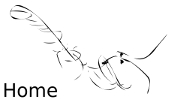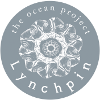Living Data:
Treaties (Agreements)
2020 Conversations
Disclaimers, Copyrights and Citations
Conversations/Index 2010 2011 2012 2013 2014 2015 2016 2017 2018 2019 2020 2021 2022 2023 2024
"[With the] devastation of Eastern Australia by fire we all have to come together...
there's no use barking at the left and the left barking at the right.
It's so important for us to learn how to look after mother earth."
Bruce Pascoe speaks,ABC Radio Broadcast: Mon 13 Jan 2020, 8:30am
 16th January 2019
16th January 2019
Sinead Collinsleads research at the University of Edinburough
in the evolution and ecology of microbes adapting to complex environmental changes.
Sinead Collinsspeaks with Lisa Robertsabout:
ECOLOGY OF COLLABORATIONS
ACTIVISM & ART ENGAGE PEOPLE WITH CLIMATE SCIENCE
IMPROVISATION AND CREATIVE PROCESS
FITNESS IN TIME OF ABUNDANCE?
PERILS OF ABUNDANCE
TRANSCRIPT
Lisa Roberts:
The challenges of some of the ecologies of researchers are based on the reality that we all have our own world of wonder, of questions, and we're constantly trying to find our place in something bigger than our selves, a network if you like, a web of enquiries.
Sinead Collins
Kind of, but mostly for the story that you're telling, the main story, is more human (laughs). But I think yes. I always like to work with people. I like to work with other researchers when I work. Part of the reason is I like telling a more complete or bigger or weirder story than I can tell on my own.
To be continued
ACTIVISM & ART ENGAGE PEOPLE WITH CLIMATE SCIENCE
TRANSCRIPT
in progress
Sinead Collins:
saying things
IMPROVISATION AND CREATIVE PROCESS
TRANSCRIPT
in progress
Lisa Roberts:
Sinead Collins:
TRANSCRIPT
Sinead Collins:
We have hundreds of years of evolutionary theory, right? It was all elaborated for things that, for organisms or populations, were thrown into environments where they we unhappy, and then their fitness goes up. But what I've done, what pollution does in a lot of cases – so nutrient enrichment around coasts, or high C02, or if you live somewhere that's kind of a bit too cold, elevated temperature. So, if you don't like the equator a little bit of warmth is positive for a lot of organisms, um, not everyone, but a lot of them. We didn't have a lot of evolutionary theory for what happens when the environment gets better, right? So I was working with hundreds of years of theory about environments getting worse, and so I just switched off what I was thinking, and said, "I have set up the experiments wrong in that evolution experiments are about bad environments and I'm doing experiments in good environments".
And so I started thinking, what happens when the environment just keeps getting better? And, well, organisms aren't adapted to that. They're adapted to environments being good transiently. And so this is sort of like, you're adapted to eating a normal amount of food and you happen upon a buffet once a year - twice a year – specially if you're kind of broke and kind of not getting enough food, you should definitely throw yourself on that buffet. Stuff your pockets. Like, go for it, right. We've all done this adaptavely as nineteen year olds, we like, “peanut butter sandwich, peanut butter sandwich, peanut butter sandwich, free pizza night, right, and then you just eat really untoward amounts of pizza.
And the question comes, what if there is free pizza every day? And the answer is, you definitely shouldn't eat it every day. But there would be no reason, in the normal environment, to evolve that 'off' switch, right.
And so these organisms, these guys in the high C02 environments, actually when there's lots of nutrients, the adaptive thing to do is grow super fast, because the nutrients will run out!
And then, you will deal with that later, and it turns out that when you grow fast – and this will make sense when you say it – you have to rev your metabolism super fast. And we already know what happens when you rev your metabolism super fast, which is that you oxidise. This is not a problem if the environment gets better because you stop growing, and you've stopped growing and you 'fix' - you make your anti-oxidants.
But if you never stop growing, then eventually your good environment externally turns into a bad environment internally.
And then whatever evolution was doing was dealing with that internal environment, so what I was getting [a a result in my experiments] was not selecting for growth at high C02; I was getting C02 driving selection for high internal oxidation.
And then, when I started revisiting all my old experiments from that, I began to see the evidence of that, right, and so that sort of took off without me at this point and it was really fun [seeing] how things just slotted into place.
I really did have a period where I was working on it because I really thought I had done something stupid and I wanted to find the 10-year mistake before someone else did, and there was a lot of, "...oh my god, maybe I should just quit science, I'm this inept", you know.
Lisa:
So it turned right around? Something came back – revealed itself?
Sinead:
Yeah, well, it wasn't like a big revelation. I make it sound like I had this moment, but really I chipped and chipped and chipped and chipped and chipped, and when I looked back on it, there were also some indicators that I didn't seek.
Lisa:
So the pattern was revealed to you?
Sinead:
Yeah, at some point there was enough of a pattern that I started looking, and then it was like, "...oh, that would explain this weird result, this weird result, and this other really really weird result".
Lisa:
It sounds to me like a big shift happened in your mind when you realised you had to think about it in a completely opposite way.
Sinead:
Lisa:
So, I remember you telling me this story a couple of years ago and you put it terms of there being a little parable here, for people today.
Sinead:
Do I remember my parable?
Lisa:
Well, it was basically about living within limits.
Sinead:
Yeah, what they had to do was evolve a way to be slow again, these algae.
So what they do, most of them [that I study], is what I call Prodigal Son Dynamics, which is really fun. I really enjoy it, naming an evolutionary phenomenon after a bible story. I don't know if I should have enjoyed it quite that much but I did.
The idea is that by living fast and hard, these things accumulated such internal damage that the only sort of route to survival was to slow everything down, which in their ancestral environment would have been unthinkable – slowing down when you're limited. This is stupid, right, if you're just struggling to stay alive, then restraining yourself could result in death. But if you're so full of resources that the main danger to yourself is the consumption of those resources, and the use of those resources in a fast and furious way, then you have to find a way to hold them back.
I find that, yes, an interesting parable, I mean there's a reason I picked a parable, right, but I think you have to be really careful, like taking these things and anthropomorphising them too much, 'cause you can also look at it as, like, the environment, the thing driving evolution, starting off as an external environment, and shifting as a result of the external environment, shifting into the internal environment. I also think that's a nice way to think about it, if what had to come under control was the internal environment of the cell; there's no longer a matter of dealing with the carbon supply, it was a matter of dealing with these stress responses.
TRANSCRIPT
in progress












